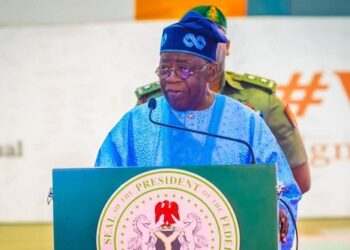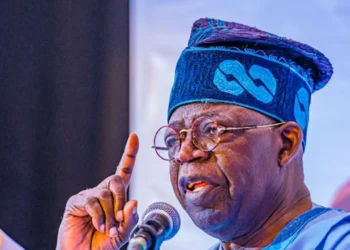The Senate said Thursday that the only solution to the challenges in the downstream sector of the Oil and Gas sector is total deregulation of the sector.
Consequently, it said that it is working towards ensuring the sector is freed of all encumbrances that is mitigating against it growth.
According to the upper chamber if the country wants a vibrant downstream that could attract investors is deregulation stressing that this would also reduce the excesses of the cabal that are profiteering from the subsidy that is provided for the sector.
Senator Kabir Marafa, chairman, Senate Committee on Downstream who disclosed this on the sideline of the ongoing Nigeria Oil and Gas Conference (NOG) at Abuja,stated that total deregulation is the solution and the 8th Senate is determined to give Nigerians a direction in the downstream and curb the corruption in the sector by ensuring that it totally deregulated
He said the governance aspect of the Petroleum Industry Governance Bill (PIGB) is currently being addressed by the Senate because “we know that PIGB will address the challenges confronting total deregulation of the downstream sector.”
He said: “This assembly is determined to pass the bill and it will be passed latest by next month (April). We will later look at the bill on fiscal terms and this would be followed by the bill on community issues.
He said the governance aspect of the Petroleum Industry Governance Bill (PIGB) is currently being addressed by the Senate because “we know that PIGB will address the challenges confronting total deregulation of the downstream sector.”
He said: “This assembly is determined to pass the bill and it will be passed latest by next month (April). We will later look at the bill on fiscal terms and this would be followed by the bill on community issues.
He said Bukola Saraki, the Senate President, took it upon himself to ensure it is passed this year. As a nation, we have to make deliberate and cautious decision on what we want as a people.”
He urged the civil society groups and the Nigeria Labour Union (NLC) that are always at the forefront of agitations against total deregulation of the downstream sector of the petroleum industry to rather frown at subsidy instead of going against deregulation of the sector.
“The civil society and labour unions should frown against subsidy regime and embrace total deregulation. If you combine NNPC and oil marketers subsidy claims, you will see that it is over N9trillion in 10 years. This is almost twice of our budget”, he said.
The Senate he disclosed has ordered investigation into subsidy claims because the Nigerian National Petroleum Corporation (NNPC) collected over N5trillion as subsidy claim since 2006.
“Does a common man get value for this subsidy regime? If the money is diverted into other infrastructural development, the country would have gone far in infrastructure building. Automotive Gas Oil (AGO) otherwise known as diesel is deregulated and we are better off. Why are people afraid of subsidy removal? Right now, government is indirectly paying subsidy.
He said the Department of Petroleum Resources (DPR) will be made stronger in order to regulate effectively. Failure of the downstream sector necessitated introduction of PIGB, but it hasn’t seen the light of the day for several years.
He said we have to be realistic and take the right decision. “We have to choose between building more infrastructure and consuming subsidy. Deregulation will promote local refining of crude oil and create more value and generate employment”.
He appealed to those who are afraid that the price of petrol would go up if the downstream becomes totally deregulated not to worry as deregulation would engender competition which would drive down the cost of petrol.
“Competition will drive down the prices in the long run. Hypocrisy of the elites is what I see in regulation of petroleum price. Most big men don’t visit filling stations but Nigerians even buy it at above the recommended retail price. All the people benefiting from fuel importation will never let deregulation happens,” he said.
He said the Department of Petroleum Resources (DPR) will be made stronger in order to regulate effectively. Failure of the downstream sector necessitated introduction of PIGB, but it hasn’t seen the light of the day for several years.
He said the Department of Petroleum Resources (DPR) will be made stronger in order to regulate effectively. Failure of the downstream sector necessitated introduction of PIGB, but it hasn’t seen the light of the day for several years.
He said we have to be realistic and take the right decision. “We have to choose between building more infrastructure and consuming subsidy. Deregulation will promote local refining of crude oil and create more value and generate employment”.
He appealed to those who are afraid that the price of petrol would go up if the downstream becomes totally deregulated not to worry as deregulation would engender competition which would drive down the cost of petrol.
“Competition will drive down the prices in the long run. Hypocrisy of the elites is what I see in regulation of petroleum price. Most big men don’t visit filling stations but Nigerians even buy it at above the recommended retail price. All the people benefiting from fuel importation will never let deregulation happens,” he said.
He said the Department of Petroleum Resources (DPR) will be made stronger in order to regulate effectively. Failure of the downstream sector necessitated introduction of PIGB, but it hasn’t seen the light of the day for several years.









